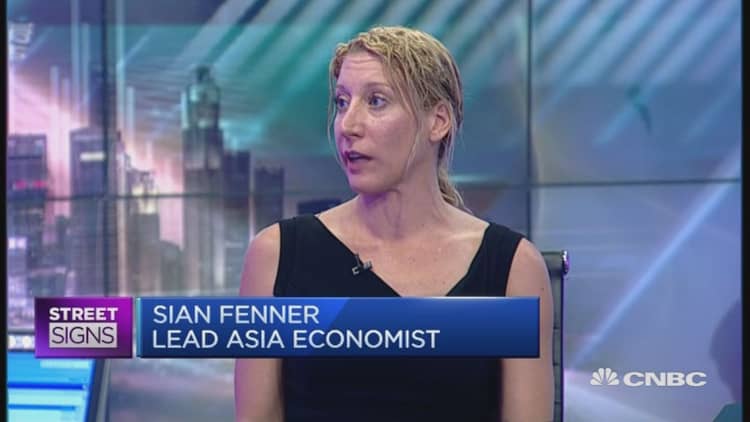Government-led extrajudicial killings are endangering rule of law in the Philippines, but the campaign is unlikely to stop anytime soon amid the President's widespread popularity and a weak political opposition.
More than 1,900 people have been killed in a nation-wide crackdown on drug peddlers and traffickers since President Rodrigo Duterte entered office seven weeks ago, the country's national police chief Ronald de la Rosa told a Senate hearing on Tuesday, according to media reports.
So far, around 750 of those deaths are confirmed to be a result of police anti-narcotics operations, while the remaining deaths were still being investigated, Rosa was quoted as saying. The 1,900 figure provided on Tuesday was higher than the 1,800 killings Rosa previously announced on Monday, Reuters said.
The former Davao City mayor, nicknamed "The Punisher", rose to power in a presidential campaign centered on fighting crime, encouraging extrajudicial killings as a key solution. He's even authorized the gun-carrying public to kill drug addicts and criminals themselves.
His actions are now sparking alarm that the country might spiral into lawlessness.
"Duterte is steamrolling the rule of law and its advocates both at home and abroad," said Phelim Kine, Asia deputy director at Human Rights Watch (HRW) in a statement this week, noting that the President was breeding a violent society.
The Philippines has long battled a history of drug-related violence, making Duterte's commitment to eradicating crime especially appealing to the bulk of the population, which won him 40 percent of the vote in the May election. A July opinion poll revealed he enjoyed a 91 percent approval rating, indicating solid support not only for his war on drugs but the sexist remarks, diplomatic blunders and threats to the business community that have marked his reign thus far.
A few domestic voices have lashed out against the President, including the Catholic Church and Senator Leila de Lima. In response, Duterte has flagged the Church's hypocrisy, particularly its wealth and priests' abuse of children, and accused de Lima of having an extramarital affair and accepting illegal campaign contributions.
Domestic institutions are effectively powerless to stand up to the President, strategists say.
"Duterte was elected with only a handful of congressional allies. But because Philippine political parties are weak, he now has the support of most legislators who simply switched sides after his victory in search of presidential patronage. This has left only a few critics in office to speak out against the crackdown," Mark Thompson, director of the Southeast Asia Research Centre at the City University of Hong Kong, and Ronald Holmes, research scholar at the Australian National University, wrote in an editorial for Caixin.
Even the Supreme Court holds little sway over Duterte. The legislative body has been politicized following the Chief Justice's removal by former President Benigno Aquino in 2012, Thompson and Holmes noted.

Pressure from international organizations is also being dismissed.
In a statement last week, the United Nations (UN) said Duterte's policy effectively gives the police and public "a license to kill." Intentional lethal use of force should not be used for common policing objectives, the international body warned, calling for an investigation into the deaths.
Duterte then threatened to leave the UN, saying the organization should stop worrying about the bones of criminals piling up.
The death toll is indeed significant but critics need to look at the bigger picture, warned Richard Heydarain, assistant professor of political science at Manila's De La Salle University.
"You have to keep in mind that Duterte has the highest approval ratings for any Philippines leader...The existing judicial system is no longer working and that is why perhaps you need draconian measures to shake up the system," he told CNBC's "Street Signs."
Given the country's historical poor track record in fighting crime, people are adopting a wait and see attitude to the war on drugs to assess whether it's successful, he said, suggesting tackling crime may be a bigger priority than human rights.
"If you're a liberal democrat, issues like human rights and due process are sacrosanct. But astonishingly in the Philippines, you now have a debate on whether human rights is really for us," he continued.
In his state of the nation address last month, the President said human rights cannot be used as a shield to undermine the country.
"That's resonating with people...it just shows that democracy and liberal values in the Ph are not fully internalized; the PH is still a fledgling democracy," Heydarain summed up.

